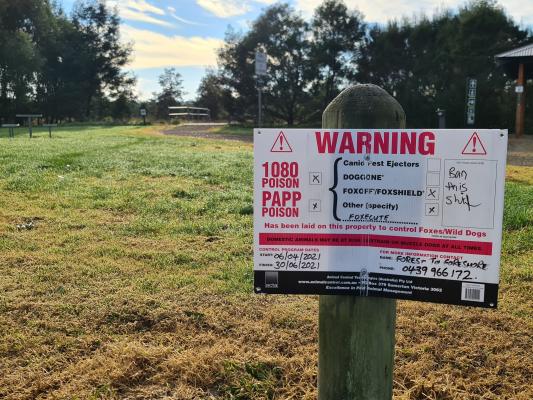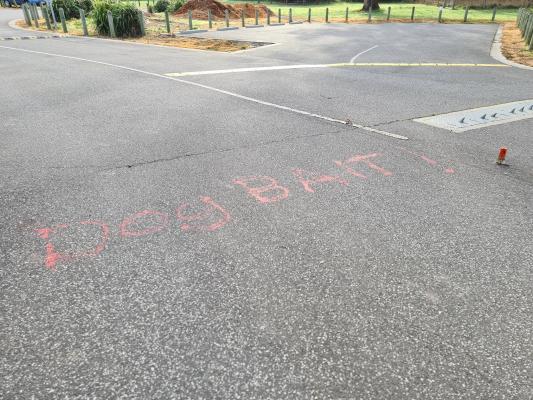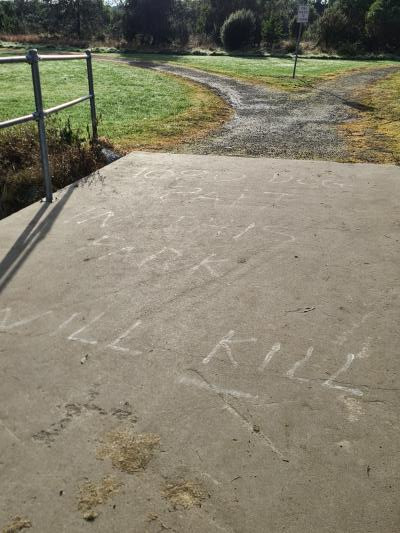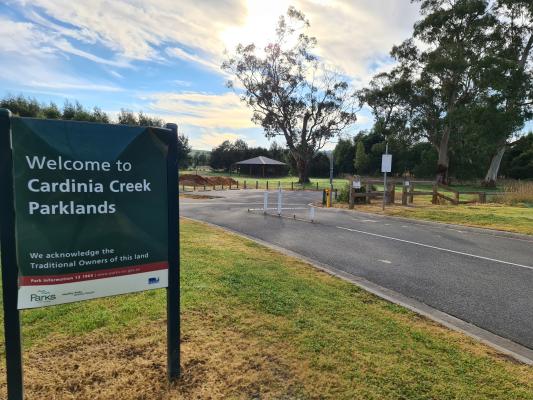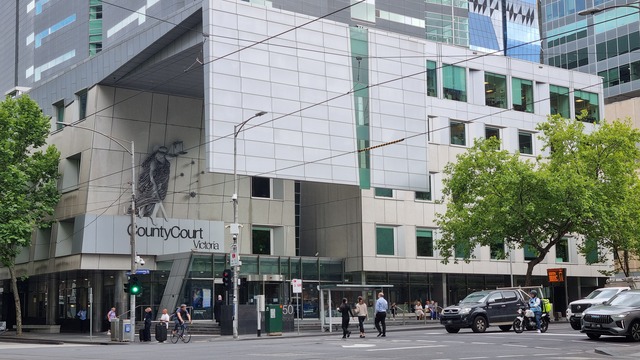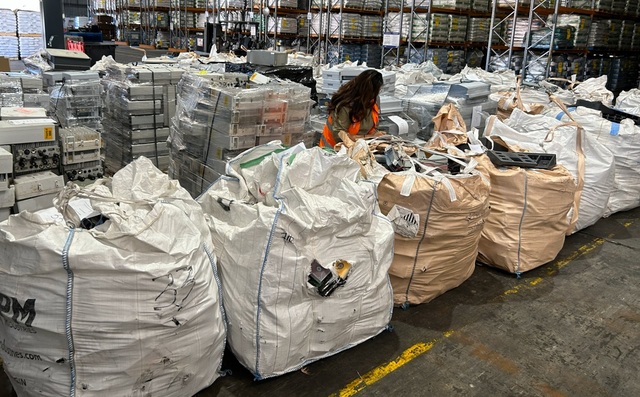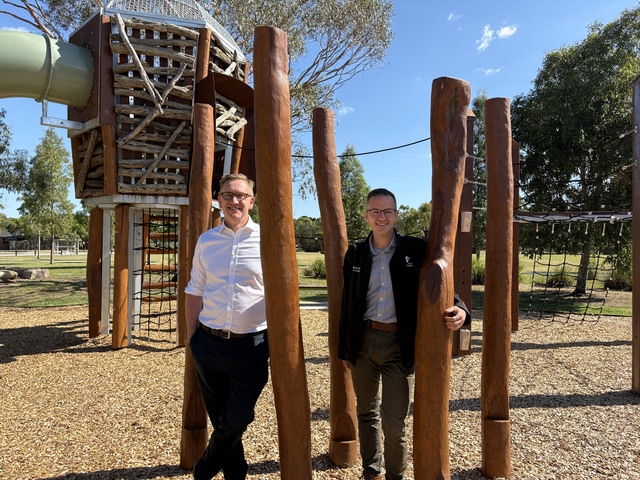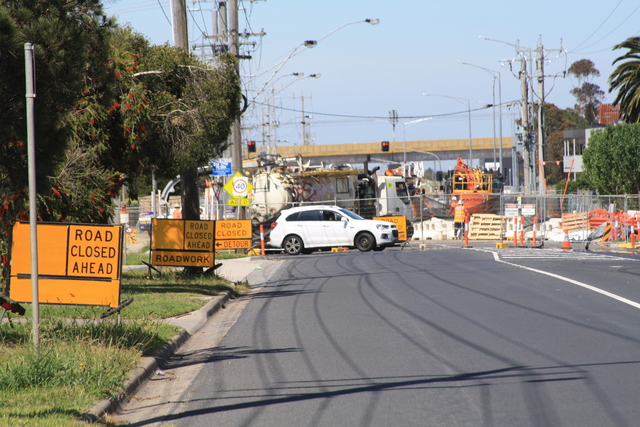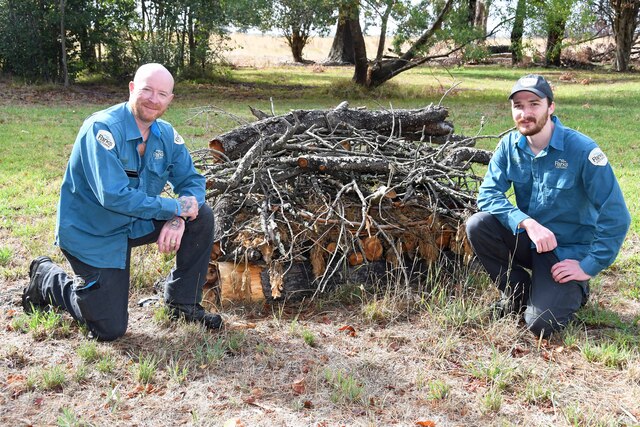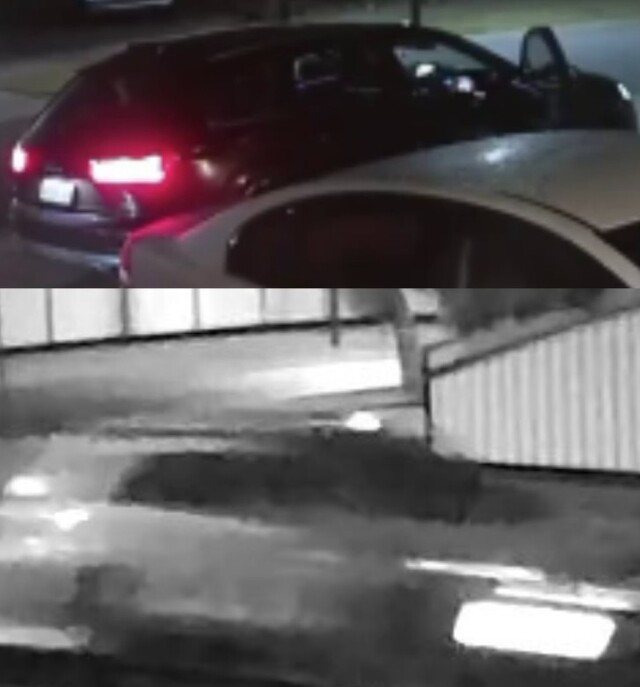Dog owners have been put on notice with poisonous baits laid near a popular walking trail.
A number of 1080 baits have been laid at Cardinia Creek Parklands on Inglis Road in Beaconsfield.
The baits are targeting foxes, which are killing native wildlife.
Warning signs at the site explain that there are baits in the area.
More recently, a warning was spray-painted on the path leading into the park – apparently by a concerned walker – calling the poison “dog bait” that “will kill”.
Darren Mitchell, area chief ranger at Parks Victoria, said the potential impact of the baits on wildlife other than foxes was “extremely low”, but added precautions had been taken to protect them such as burying the baits and spacing them at least 500 metres apart.
Those living nearby were also warned about the upcoming baiting, which began on Tuesday 6 April.
Nevertheless, a photo of the spray-painted warning, posted on Facebook, attracted a number of concerned comments from walkers and residents worried that dogs and birds might inadvertently ingest the poison.
The 1080 pesticide is extremely toxic and the RSPCA notes there is no antidote.
One local walker, who wished to remain anonymous, said they did not notice the signs in the area before entering the park and only became aware of the baits when they saw the spray-painted message.
“I am now grateful to whoever wrote it on the concrete as it was very eye catching,” they said.
“I was very hesitant to walk my dog. I had him on a lead but was anxious the whole time as he is a very curious dog by nature.”
They said they left Cardinia Creek Parklands and went to a different park where they felt safer.
The person said they wished there was a safer way to poison foxes in the area, and questioned whether there was a more efficient way to let visitors know about the poison such as more prominent signage or using animal registration data to contact nearby dog owners.
“I don’t think they should put it in parks, it is too much of a risk and the signage really isn’t adequate.
“Something as serious as this needs to be prominent,” they said.
Another walker at the park said they simply kept their dogs close by and ensured they did not eat anything while at the park to minimise the risk of poisoning.
Mr Mitchell recommended concerned walkers take a number of precautions while in the parklands.
“It is important to keep your dog on a leash at all times,” he said.
“The best way to prevent dogs from picking up baits is by ensuring they are kept safely away from any source of the poison and staying on existing tracks. A muzzle is also recommended.”
The baits are set to be collected by 30 June.

